 W
WThis is a list of wars involving Georgia, by Georgians or regular armies during periods when independent Georgian states existed, from antiquity to the present day. It also includes wars fought outside of Georgia by the Georgian military.
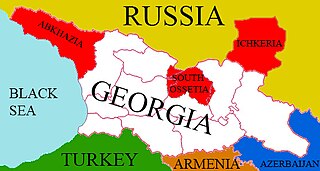 W
WThe 1991–1992 South Ossetia War was fought as part of the Georgian–Ossetian conflict between Georgian government forces and ethnic Georgian militia on one side and the forces of South Ossetia and North Ossetian volunteers who wanted South Ossetia to secede from Georgia and become an independent state on the other. The war ended with a Russian-brokered ceasefire, signed on 24 June 1992, which established a joint peacekeeping force and left South Ossetia divided between the rival authorities.
 W
WThe War in Afghanistan is a war following the United States invasion of Afghanistan that began when the United States of America and its allies successfully drove the Taliban from power in order to deny Al-Qaeda a safe base of operations in Afghanistan. Since the initial objectives were completed, a coalition of over 40 countries formed a security mission in the country called International Security Assistance Force, of which certain members were involved in military combat allied with Afghanistan's government. The war has afterwards mostly consisted of Taliban insurgents fighting against the Afghan Armed Forces and allied forces; the majority of ISAF/RS soldiers and personnel are American. The war is code named by the U.S. as Operation Enduring Freedom (2001–14) and Operation Freedom's Sentinel (2015–present); it is the longest war in U.S. history.
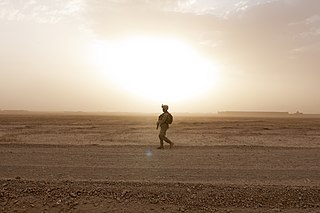 W
WGeorgia joined the war in Afghanistan in 2004 and the country had become the largest non-NATO and the largest per capita troop contributor to the International Security Assistance Force in Afghanistan by late 2012, with over 1,560 personnel on the ground as of May 2013. At its peak deployment, Georgia provided two full infantry battalions serving with the United States forces in the Helmand province. Since the beginning of their mission, more than 11,000 Georgian soldiers have served in Afghanistan.
 W
WThe August Uprising was an unsuccessful insurrection against Soviet rule in the Georgian Soviet Socialist Republic from late August to early September 1924.
 W
WAzat Mousa's invasion of Georgia took place from c. 1302 to 1303. The invasion was initiated by group of Turkoman tribes led by Azat Mousa, it is likely that they were connected with the Chepni clan, the main nomadic tribe in the hinterland of Pontus.
 W
WThe campaigns of Nader Shah, or the Naderian Wars, were a series of conflicts fought in the early to mid-eighteenth century throughout Central Eurasia primarily by the Iranian conqueror Nader Shah. His campaigns originated from the overthrow of the Iranian Safavid dynasty by the Hotaki Afghans. In the ensuing collapse and fragmentation of the empire after the capture of the Iranian capital of Isfahan by the Afghans, a claimant to the Safavid throne, Tahmasp II, accepted Nader into his service. After having subdued north-west Iran as well as neutralising the Abdali Afghans to the east as well as turning Tahmasp II into a vassal, Nader marched against the Hotaki Afghans in occupation of the rest of the country. In a series of incredible victories the Afghans were decimated and Tahmasp II returned to the throne as a restored Safavid monarch.
 W
WThe Caucasus campaign comprised armed conflicts between the Russian Empire and the Ottoman Empire, later including Armenia, Azerbaijan, Georgia, the Mountainous Republic of the Northern Caucasus, the German Empire, the Central Caspian Dictatorship, and the British Empire, as part of the Middle Eastern theatre during World War I. The Caucasus campaign extended from the South Caucasus to the Armenian Highlands region, reaching as far as Trabzon, Bitlis, Mush and Van. The land warfare was accompanied by naval engagements in the Black Sea.
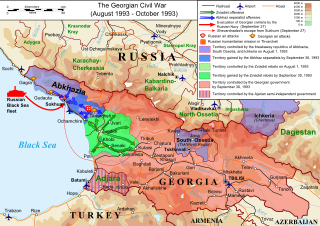 W
WThe Georgian Civil War was a civil war in Georgia consisting of inter-ethnic and intranational conflicts in the regions of South Ossetia (1988–1992) and Abkhazia (1992–1993), as well as the violent military coup d'état of December 22, 1991 – December 31, 1993, against the first democratically elected President of Georgia, Zviad Gamsakhurdia, and his subsequent uprising in an attempt to regain power (1993).
 W
WThe Abkhaz–Georgian conflict involves ethnic conflict between Georgians and the Abkhaz people in Abkhazia, a de facto independent, partially recognized republic. In a broader sense, one can view the Georgian–Abkhaz conflict as part of a geopolitical conflict in the Caucasus region, intensified at the end of the 20th century with the dissolution of the Soviet Union in 1991.
 W
WThe Georgian–Armenian War was a short border dispute fought in December 1918 between the newly independent Democratic Republic of Georgia and the First Republic of Armenia, largely over the control of former districts of Tiflis Governorate, in Borchaly (Lori) and Akhalkalaki.
 W
WThe Georgian–Ossetian conflict is an ethno-political conflict over Georgia's former autonomous region of South Ossetia, which evolved in 1989 and developed into a war. Despite a declared ceasefire and numerous peace efforts, the conflict remained unresolved. In August 2008, military tensions and clashes between Georgia and South Ossetian separatists erupted into the Russo-Georgian War.
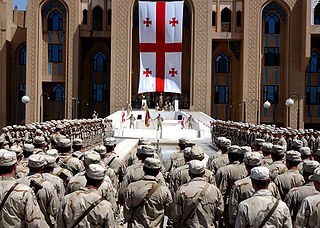 W
WGeorgia joined the Iraq war as part of the United States-led coalition in August 2003. By 2008, Georgia had deployed 2,300 troops in Iraq, becoming the third largest contributor to the coalition forces in the Iraq War. In addition, the country provided a battalion of approximately 550 troops to the United Nations Assistance Mission in Iraq. All Georgian troops were withdrawn from Iraq amid the Russia–Georgia war in August 2008. Georgia suffered five fatal casualties in Iraq.
 W
WThe Iraq War was a protracted armed conflict that began in 2003 with the invasion of Iraq by a United States-led coalition that overthrew the government of Saddam Hussein. The conflict continued for much of the next decade as an insurgency emerged to oppose the occupying forces and the post-invasion Iraqi government. An estimated 151,000 to 1,033,000 Iraqis were killed in the first three to four years of conflict. US troops were officially withdrawn in 2011. However, following the spread of the Syrian civil war and the territorial gains of the Islamic State of Iraq and the Levant (ISIL), the Obama administration decided to redeploy US forces to Iraq in 2014. Many former soldiers are employed by defense contractors and private military companies. The U.S. became re-involved in 2014 at the head of a new coalition; the insurgency and many dimensions of the armed conflict continue. The invasion occurred as part of the George W. Bush administration's War on Terror, following the September 11 attacks.
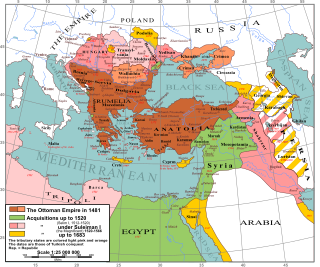 W
WLala Mustafa Pasha's Caucasian campaign was a military expedition launched in 1578 by Lala Mustafa Pasha, a grand-vizier of the expanding Ottoman Empire. It is also considered a part of the larger conflict, Ottoman–Safavid War (1578–90).
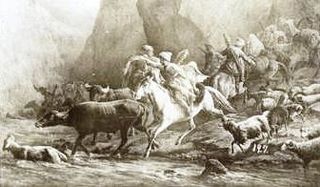 W
WLekianoba was the name given to sporadic forays and marauds by Dagestani people into Georgia from the 16th to the 19th centuries. The term is derived from Leki by which the Georgians knew Dagestani peoples, with the suffix –anoba which designates attribution. The references to these raids appear in the Epic poetry of Avars; the names of rulers who lead the most devastating attacks, Umma-Khan, Nursal-Bek, and Mallachi, are mentioned in Georgian sources.
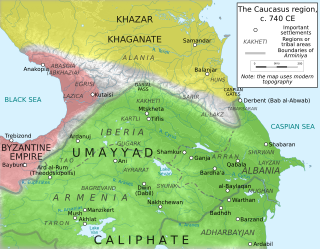 W
WMarwan ibn Muhammad's invasion of Georgia took place from 735 to 737. It was initiated by the Umayyad Caliphate. The goals of the campaign are disputed among historians. The Georgian historiography insists its main purpose was to finally break the stiff Georgian resistance against Arab rule, however, the western historians such as Cyril Toumanoff, and Ronald Suny, view it as a general campaign directed at both the Byzantine Empire, who exerted dominion over Western Georgia, and the Khazars, whose repeated raids affected not only Iberia and the whole Caucasus, but had in 730 reached Arab lands all the way to Mosul.
 W
WEmperor Nader Shah, the Shah of Persia (1736–47) and the founder of the Afsharid dynasty of Persia, invaded Northern India, eventually attacking Delhi in March 1739. His army had easily defeated the Mughals at the battle at Karnal and would eventually capture the Mughal capital in the aftermath of the battle.
 W
WNader's Dagestan campaign, refers to the campaigns conducted by the Persian Empire under the ruling king Nader Shah between the years 1741 and 1743 in order to fully subjugate the Dagestan region in the North Caucasus Area. The conflict between the Persian Empire & the Lezgins and a myriad of other Caucasian tribes in the north was intermittently fought through the mid-1730s during Nader's first short expedition in the Caucasus until the last years of his reign and assassination in 1747 with minor skirmishes and raids. The incredibly difficult terrain of the northern Caucasus region made the task of subduing the Lezgins an extremely challenging one. Despite this Nader Shah gained numerous strongholds and fortresses from the Dagestan people and pushed them to the very verge of defeat. The Lezgins however held on in the northernmost reaches of Dagestan and continued to defy Persian domination.
 W
WThe Red Army invasion of Georgia, also known as the Soviet–Georgian War or the Soviet invasion of Georgia, was a military campaign by the Russian Red Army aimed at overthrowing the Social-Democratic (Menshevik) government of the Democratic Republic of Georgia (DRG) and installing a Bolshevik regime in the country. The conflict was a result of expansionist policy by the Russians, who aimed to control as much as possible of the lands which had been part of the former Russian Empire until the turbulent events of the First World War, as well as the revolutionary efforts of mostly Russian-based Georgian Bolsheviks, who did not have sufficient support in their native country to seize power without external intervention.
 W
WThe Russo-Georgian War was a war between Georgia, Russia and the Russian-backed self-proclaimed republics of South Ossetia and Abkhazia. The war took place in August 2008 following a period of worsening relations between Russia and Georgia, both formerly constituent republics of the Soviet Union. The fighting took place in the strategically important Transcaucasia region. It was regarded as the first European war of the 21st century.
 W
WThe Russo-Persian War of 1722–1723, known in Russian historiography as the Persian campaign of Peter the Great, was a war between the Russian Empire and Safavid Iran, triggered by the tsar's attempt to expand Russian influence in the Caspian and Caucasus regions and to prevent its rival, the Ottoman Empire, from territorial gains in the region at the expense of declining Safavid Iran.
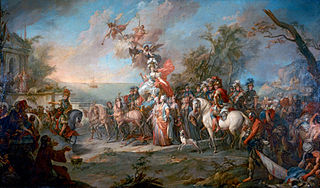 W
WThe Russo-Turkish War of 1768–1774 was a major armed conflict that saw Russian arms largely victorious against the Ottoman Empire. Russia's victory brought Kabardia, part of Moldavia, the Yedisan between the rivers Bug and Dnieper, and Crimea into the Russian sphere of influence. Though a series of victories accrued by the Russian Empire led to substantial territorial conquests, including direct conquest over much of the Pontic–Caspian steppe, less Ottoman territory was directly annexed than might otherwise be expected due to a complex struggle within the European diplomatic system to maintain a balance of power that was acceptable to other European states and avoided direct Russian hegemony over Eastern Europe.
 W
WSochi conflict was a three-party border conflict which involved the counterrevolutionary White Russian forces, Bolshevik Red Army and the Democratic Republic of Georgia, each of which sought control over the Black Sea town of Sochi. The conflict was fought as a part of the Russian Civil War and lasted with varying success from July 1918 to May 1919, and ended through British mediation establishing the current official border between Russia and Georgia.
 W
WThe Turkish War of Independence was fought between the Turkish National Movement and the Allied powers—namely Greece in the West, Armenia on the East, France on the South, royalists and the separatists in various cities, and the United Kingdom and Italy in Constantinople —after parts of the Ottoman Empire were occupied and partitioned following the Ottomans' defeat in World War I.
 W
WThe War in Abkhazia was fought between Georgian government forces for the most part and Abkhaz separatist forces, Russian government armed forces and North Caucasian militants between 1992 and 1993. Ethnic Georgians who lived in Abkhazia fought largely on the side of Georgian government forces. Ethnic Armenians and Russians within Abkhazia's population largely supported the Abkhazians and many fought on their side. The separatists received support from thousands of North Caucasus and Cossack militants and from the Russian Federation forces stationed in and near Abkhazia.